Etched in Memory

Sometimes there are events so monumental they’re perfectly preserved as a snapshot, never forgotten. 5 readers share the moments forever
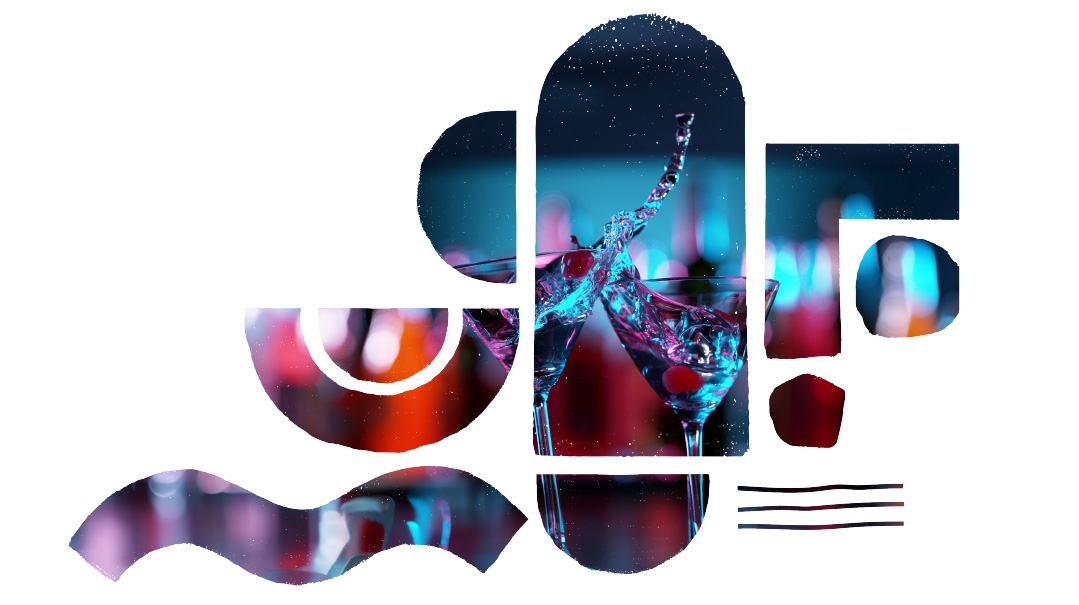
Wake Up and Smell the Coffee
MY teenage years were tumultuous, as they are for many teens. I had an amazing group of friends who were great role models, and I was involved in many different programs in the community. But things were very hard at home. There was a lot of conflict and tension.
Like I said, I was a good girl, with good friends. But knee deep in the chaos of home, I reverted to another persona. Maybe it was my way of dealing with the conflict without actually facing it, maybe I felt I was getting back at my parents. Whatever it was, when things were tense at home, I’d hang out with my other chevreh, and that was when I really got myself into trouble.
Through this, I had a very close relationship with my high school principal and his wife, and they guided me through a lot. They knew about some of what I was dealing with and tried to be patient with my teenage antics. But when they’d try to talk sense to me, I’d listen with only half an ear and many eye rolls.
Until Purim night of 11th grade. My house was upside down, and there was a lot of fighting. I’d attended the school chagigah, but when it was over, I knew I wasn’t going home. I also knew that no one would even notice. Instead, I went with the gang to another girl’s house. Her parents were completely checked out. We were in the basement, a group of guys were there, and alcohol was passed around freely.
Then my cell phone rang. Mrs. Cohen*, my principal’s wife, was calling. One of the girls at the party, who was completely intoxicated, grabbed the phone and answered with a greeting that I can’t repeat. I froze and did the only thing I could think of — I threw my phone across the room.
I finally regained my composure somewhat, and as I went to get my phone, still shaking, it rang again. It was Mrs. Cohen. I answered and slipped out the back. Everyone was too far gone to notice. “Are you okay?” she asked.
I couldn’t talk. “Can you come get me?” I asked.
“Sure,” she said. “Where are you?”
I couldn’t tell her where I was, but she agreed to pick me up at a nearby intersection. Soon enough, she drove up in her white Pontiac, in a robe. It was two a.m.
We sat there on the lamplit street in silence for what felt like eternity. Finally, she said two words that changed everything: “You stink.” (I did.)
That was it. My facade crumbled. “I can’t do this anymore,” I told her. “This isn’t the life I want.”
I can’t say the change happened overnight, but slowly I began to distance myself from my buddies and learned to handle my situation better. With Hashem’s help and a lot of guidance, I found the path I wanted to be on.
Today I am a mechaneches in an out-of-town school. Many of our girls are blessed to have a sense of direction from the get-go, but there are many others who are taking a more scenic route. We put so much into these incredible neshamos; we see them and what they have within them. Still, at times it can be discouraging to see them struggling.
At those moments, I look back at my own journey and draw strength, remembering that Hashem has a plan. I know He will send each of my girls the right shaliach to guide them.
My students’ names, both past and present, are next to my leichter and on my lips every day, and I daven that they will see how one defining moment can impact their lives in such a beautiful way.
*name has been changed
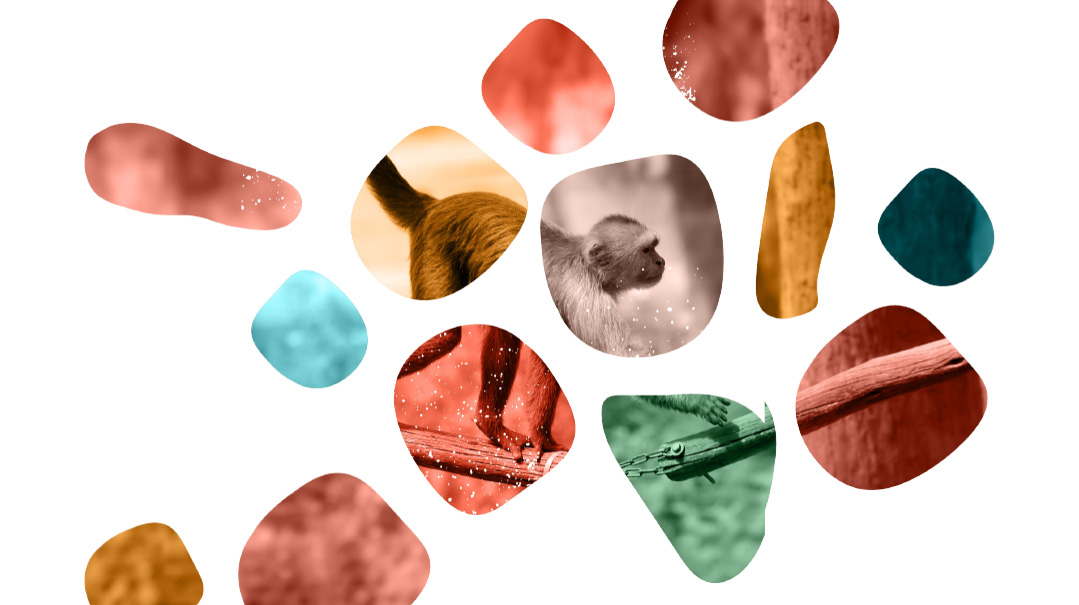
Divine Recruiter at the Zoo
I was a new oleh to Israel, and I had to make a decision. I had two job offers, and I had to accept one of them. One was from a well-established, Fortune 500 company with a solid financial history; the other a relatively new start-up with no sales to date, but lots of promise.
Honestly, I didn’t want to take either position just yet. I had just arrived on these shores, with four little ones in tow, the youngest a few months old. I was struggling to navigate my way around the local supermarket and speak in broken Hebrew to my children’s teachers. I was so out of my element. Did I really want to add a new job in this frighteningly strange environment to my already teetering pile of responsibilities? But financial realities have a way of confronting us, and the bills had to be paid, whether or not I understood the language they were written in.
So I wobbled forward in a lame attempt to arrive at some clarity. I spoke to people in both companies, tried to get a sense of which would be the best fit, tossed and turned in bed at night, and still wasn’t sure. It was already Chanukah, and both companies wanted a decision soon.
I was proud I’d managed to convince two Israeli companies that I was worthy of hire. But how long could I keep up the charade? And which one of those job offers would allow me the space to grow and adapt to my new environment?
That cold morning in December, I had to give both places a tentative answer. I steeled myself, sent up a silent prayer, and made the first call. I spoke with my contact at the Fortune 500 company, and we made up to meet after Chanukah to make the final decision. I called the fledgling start-up and was told that the CEO wasn’t in. Phew. A brief reprieve.
My kids were home for Chanukah vacation, and they were chomping at the bit, not the least bit interested in my inner turmoil. I decided to take them to the Biblical Zoo. I threw a few apples, carrots, and bags of Bamba into a bag, wrapped an old shmatteh around my head in a vain attempt to look local (my mother would have been appalled at the casualness of Israeli attire!), and got myself and the kids onto the 33 bus.
What I didn’t know was that the CEO of the start-up wasn’t in because he was playing good Jewish Abba and taking his kids to the zoo. And the very first person I met when I finally climbed off the bus, head covering askew, covered in Bamba crumbs, my motley crew tugging at my skirt and squabbling was — yup, you guessed it — the CEO.
I gaped. I didn’t have my smart interview suit on. My Shevy sheitel was nowhere in sight. My sleek briefcase had been replaced by a plastic Rami Levy shopping bag. There was nowhere to hide.
In a booming voice, he accosted me. “Nu, so did you decide already? Will you come work for us?”
I stammered and stumbled over my answer. “Uh, yes, uh, I guess so,” I said.
“Good,” he thundered. “See you after Chanukah. Be on time.” Then he left to see the monkeys.
I stood there in shock. What had just happened? What had I just done? I wasn’t sure what I wanted, but I was leaning to working for the other company. And now, because of an uncomfortable encounter, I’d stammered my way into accepting the other offer.
Needless to say, I didn’t enjoy the zoo outing that day. I berated myself all afternoon while shepherding the kids mindlessly from one exhibit to another. They had a great time. I was miserable.
Well, it turns out that the decision was one of the best I ever made in Israel. I ended up working for a company that gave me a lot of exposure to the field, opportunity to grow, and lifelong friends that became like family.
Though I can’t really give myself credit for that decision. It was my Heavenly Father, looking out for me at the Jerusalem Biblical Zoo.
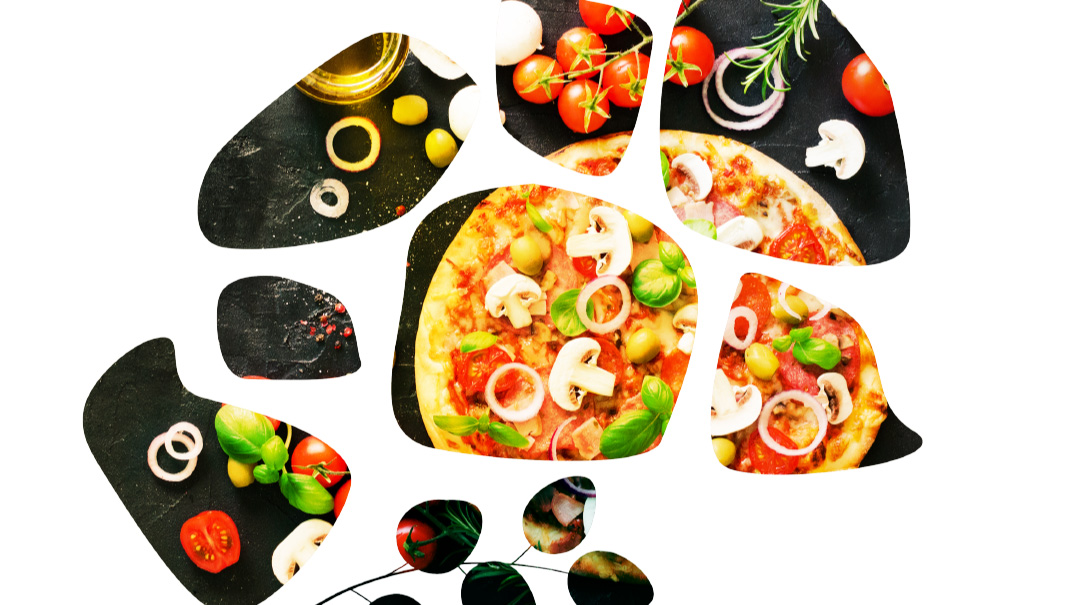
Slice of Truth
MY path to Yiddishkeit began with a slice of Chicago deep dish pizza; the real kind — thin crust on the bottom and up the sides of a deep-dish pan, a thick layer of gooey cheese, then rich pizza sauce on the top. My family was “religious,” but that didn’t stop us from enjoying our pizza; we’d simply make sure the server knew the pizza had to be vegetarian, and we’d double and triple check that the sauce wasn’t mixed with the sausage that any real deep-dish pizza should have.
Being “religious” meant eating anywhere we wanted as long as we ate only dairy, fish, or vegetables. We were careful to read all packages and knew which buzzwords indicated hidden pork. We had Shabbos dinner and lunch and never ever missed shul (walking a mile each way, even in the Chicago snow and heat), but watched TV the rest of the time.
My “religious” life set me apart from the rest of my friends and cousins, and I was so proud to flex my observance. I’d sit with my neighborhood friends on the front porch, eating snacks purchased at the local corner store, but I wouldn’t bring them into the house since they weren’t kosher. I’d bring my own marshmallows to camp on s’mores day, looking disdainfully at my friend’s bologna and cheese sandwiches.
Back in the 90s, a weekend pizza dinner in one of Chicago’s famous (treif) eateries was an hours-long event. The reservation was made far in advance. We’d arrive on time and wait an hour to be seated, while passing the time enjoying the free appetizers. Finally, we’d order the pizza, wait 45 minutes for it to arrive at the table, and wait another 30 minutes before removing a slice because a real Chicago deep dish needs that time to set, or the cheese will cave in and the whole thing will be ruined.
We’d sit and chat and wait. After eating one slice each, we’d be full. Who had room for more after all the fried mozzarella balls, battered zucchini, and other “kosher” offerings? So we’d go home, leaving the rest of the pizza behind — it was okay to eat at the restaurant, but we were too “religious” to bring it into our house.
I was 11 years old when I started questioning things. One day, after leaving a particularly delicious pizza behind, I wondered, Why is this okay? Why have we just spent a considerable amount of time planning this meal, which was perfectly acceptable to enjoy at the restaurant, if it was something we wouldn’t allow at home? How did that make any sense?
I informed my mother that if I couldn’t eat something in the house, I was no longer going to eat it at all. Eyebrows raised, smile on her face, my mother said okay. I wasn’t the first; my sister had made this decision a few years prior.
While my parents were amused with the decision made on the fly — because of a slice of pizza —they never forced me to eat treif. And I stuck to my guns, though it wasn’t always easy. In the suburbs where we lived, there was very little available in the way of kosher snacks, and it was a while before I knew the frum part of the city even existed.
Any Chicagoan knows about a huge annual summer event known as “The Taste of Chicago.” It’s a weeklong food festival showcasing the best of what our city has to offer. The event featured many satellite events in the suburbs, and we’d attend one every year. My parents decided to call my bluff, offering my friends and me as many food tickets as we wanted. I declined and sat drinking Coke while everyone around me ate all my favorite things. Instead of feeling proud to have found a “kosher” option at a treif venue, I felt proud to find a small slice of emes and stick to it.
Shortly after this last trip for pizza, I started to resent my lifestyle. I didn’t quite fit in with my peers, but I didn’t understand why. It was time for me to start going to overnight camp, and the idea of joining my classmates in the Conservative camp they attended seemed like a nightmare to me. I decided to join one of my “Shabbos friends” at a frum overnight camp.
I had a fantastic summer and learned many new concepts (like a most important day called Tishah B’Av). It made me wonder what else my education had left out. It also made me feel like I had been lied to all this time when I was told by my rabbis that what I was doing was “religious” and true.
Once I was finally old enough to join my sister in the local chapter of NCSY, a whole new world opened to me. I’m forever grateful to a few specific NCSY advisors who introduced my friends and me to the kosher world in my own city, and even more, to their families for opening up their homes to me for Shabbos.
Eventually, my mother also came around and started asking her own questions. She, too, wondered why leading a double life was the “religious” thing to do, and she joined my sister and me. Shabbos, and our lifestyle, became one of true growth, both inside and outside the home.
And it turns out that Chicago has some pretty great kosher deep-dish pizza.
L’illui nishmas Toybeh Shayna bas Moshe Fishel HaKohein, who was so proud to reach her goal of being fully shomer Shabbos and kashrus.
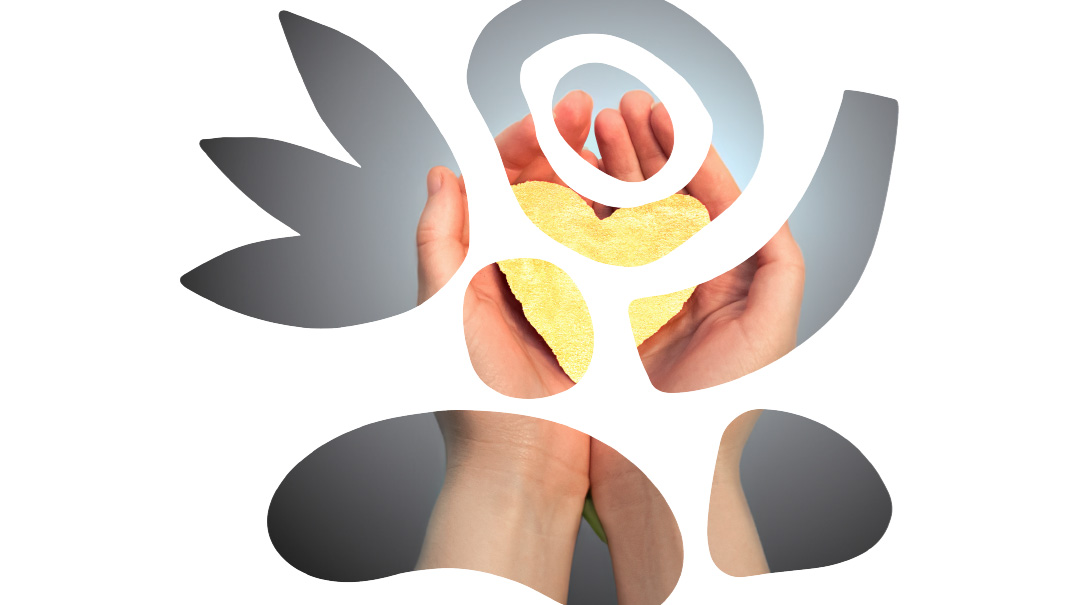
Make Me or Break Me
I was ambivalent about writing my story. I thought it seemed cliché. Because before it happened, I was cliché. Textbook life, predictable and perhaps just a tad too easy. I was the girl you were happy for sometimes, and jealous of sometimes, too. Because before, everything just came naturally.
I was a straight-A student, a do-gooder, a high achiever. The kind of girl who made our high school proud. My teachers liked me, and they were effusive in their praise. I was popular. I snagged the right summer jobs with little effort. I went to a top seminary and received numerous offers for teaching positions the following year. I was cruising along, smooth and fast.
There was a niggling thought that surfaced occasionally and then buried itself before taking too much of my attention. A little voice challenged my accomplishments and the easy ebb and flow of my life, prodding to know if I’d be so good, so earnest, and so successful if everything wasn’t so seamless. All those lofty lessons I learned in school; had I truly internalized them? Smiling when it’s sunny is simple. I’d nodded my head during discussions about emunah and bitachon, taking meticulous notes. But how much of my Yiddishkeit was my own?
The niggling voice began to take more headspace. It grew relentless. I finally penned a letter to a mentor, seeking advice abount my “midlife” crisis. Does Hashem want more from me?
Her guidance was honest and incisive. You may be on cruise control now, but fear not, you have a lifetime ahead of you. There will be abundant opportunities to stretch yourself.
Fortified, I carried on, working, tutoring, completing my BA, dabbling in shidduchim. My avodas Hashem was sincere. I could even articulate my goals, and I was working on them… patience, increased kavanah in tefillah, learning the parshah and some mussar, amid plenty of Tehillim saying.
Baruch Hashem, I became engaged quickly to a baal middos from a fine family. I was thrilled. Again, everything was just right. We were thrown into the world of invitations, sheitels, and gowns. It was a glorious time. This was all Before.
Then the unthinkable happened. My engagement was broken. Suddenly, abruptly. It was completely unexpected. I plummeted into an alternate reality of shock, pain, and embarrassment.
Me? It can’t be. This happens to other people. How to save face and be my confident, competent, and successful self?
One thing I knew with certainty. This nisayon would make me or break me. And it wasn’t going to be the latter.
My family rallied behind me. And here began the chapter of After.
I summoned the fundamentals from high school and seminary, the idealistic talks of emunah and bitachon, of Hashem’s boundless love and compassion, and the perfection of His Master Plan. The lessons that seemed so basic, so straightforward and uncomplicated now metamorphosized into moments of silent tefillah.
The journey of After continues, and it isn’t always easy. It’s a journey that entails truly knowing and believing that Hashem loves me, that He’s guiding me and will lead me to the right one.
This is my avodas Hashem. Some days I feel empowered and motivated. Some days find me crying through my tefillos, wondering why this had to happen. And when I feel a pang of jealousy, looking at my happily married friends, I remind myself that there is no pain that isn’t measured by Hashem or prescribed with a purpose. I’m determined to feel simchas hachayim and optimism. I focus on gratefulness for the innumerable blessings I’ve been given.
Before, it all came naturally. After, it’s a steady battle. But it’s a reality I wouldn’t choose to reverse. Motions and mindsets that were rote are now rightfully mine.
Recently, I found one small gold foam heart from the days that kallah decorations adorned my walls and filled the dressers in my room. It must have escaped my sister’s hasty cleanup, on that night After It happened.
I almost threw the heart in the trash. Instead, I assigned it to a prominent spot on my dresser. A reminder that Hashem, my Father in Heaven, always loves me. No matter what.
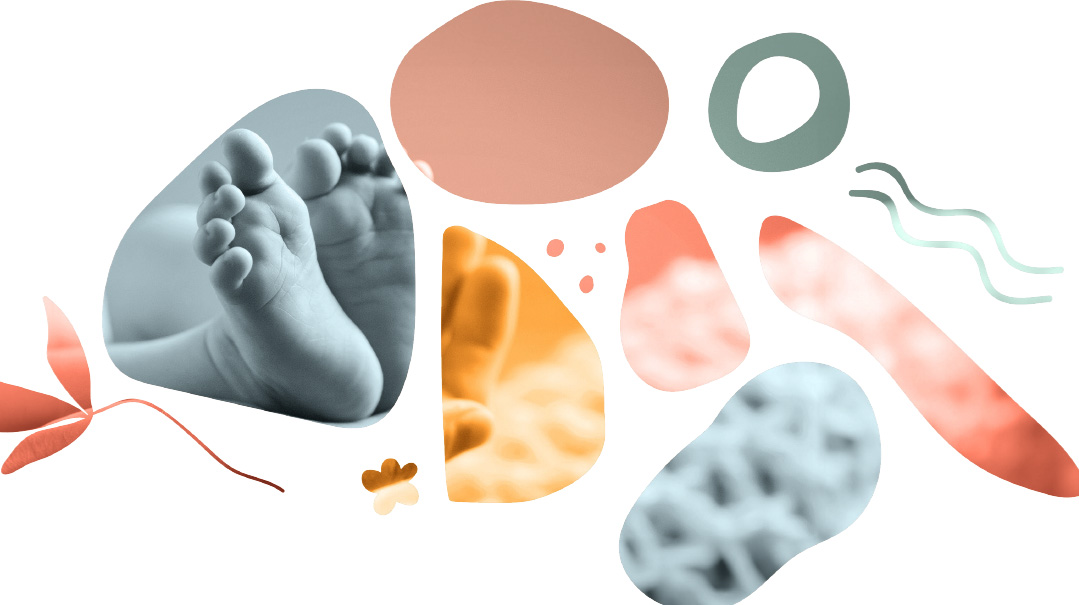
Message in a Number
I found out I was expecting ten weeks after our wedding. I wasn’t 20 years old, or 30, so the quick pregnancy was a wonderful surprise. But a couple of weeks later, on Shavuos, it suddenly ended: early miscarriage. What was “supposed” to become our child was gone.
The world went gray. All color, the sounds of music, even the taste of food seemed to fade with our lost child. After Yom Tov, I took one day off from my job as a reporter at Fox News and made phone calls, hoping my friend’s obstetrician could answer some questions and make sure I didn’t need any medical attention. Baruch Hashem, I didn’t, but he suggested I see a fertility doctor. “When?” I thought. After the wedding and sheva brachos, I had no vacation days left.
The next day, I was back to work, researching, interviewing, writing, recording and doing live broadcasts. I had no vacation days left, so no time for doctors. I realized it was time to give notice and stop working. I had a different deadline now.
I’d been conditioned to equate effort with success. I saw top specialists and did all the tests. We went to Jewish medical conferences, and I even moderated some panels for A T.I.M.E. Then, another positive pregnancy test… and two weeks later, an ultrasound showing a tiny beating heart. But the heartbeat was slow. And my levels of the hormone hCG* weren’t doubling every two to three days, as they should have. I focused on that tiny flicker of a heartbeat that never picked up speed and stopped beating soon after.
I thought my own heart would never beat the same again. Was I unable to carry a baby? Was there a chromosomal abnormality that prevented the baby from progressing past eight weeks?
We tried different treatments and different doctors. At my age, it was definitely a gamble. After each failed treatment and each miscarriage, the emptiness would be overwhelming. I worried that it just wasn’t meant to be.
But each year on Rosh Hashanah we’d read Tefillas Chana, and I was reminded of the woman who didn’t give up.
And we didn’t.
Baruch Hashem, we had supportive family and friends. People would call and say, “We’re davening at the Kosel. What are your Hebrew names?” Or, “We’re going to a huge tzaddik for brachos, can we give him your names?” And one day, after another miscarriage, while sitting with a close friend — whose shiurim I attend in our neighborhood, and who always lent a listening ear to my worries — I said, “Maybe I’m fighting against Hashem’s will. Maybe He doesn’t want us to have children.”
She said, “There’s another piece to look at that I think you’re ready to hear. Do you think you are?”
I scowled. “It depends what it is.” And then, half curious, half cynical, I said, “Okay, tell me.”
“You don’t have to feel like you’re fighting against Hashem’s Will. When you daven, tell Hashem you’re willing to go along this path with Him.
I protested. “What? Just give up?”
“No. It doesn’t mean that. It’s just saying you’re willing to travel through this with Him and His Will.”
I was able to hear that, but not feel it. But I said the words, hoping I’d believe them some day.
I kept thinking about the numbers. A pregnancy is more likely to progress, though it’s never guaranteed, if it has the right number of chromosomes: 23 x 2, making 46 total. Maybe I should recite perek 23 of Tehillim? But it was too sad because that’s the perek that’s said at funerals.
Still, the number stayed in my mind. When I davened or lit Shabbos candles, I just said, “Please Hashem, make it a healthy 23 plus 23. 46 total.” It sounded like a fast-food order, but I didn’t care. I wasn’t convinced Hashem heard me anyway.
After five years, we’d tried everything. Everything. Doctors had nothing new to offer. But we tried again. I davened over and over for the healthy equation: 23 plus 23, making 46. Over and over.
One crisp November morning, I took a cab over to the lab for a pregnancy test, trying to relax. I made up not to answer the doctor’s call that afternoon. Instead, I asked them to leave a voicemail with the actual number of hCG present in my blood. No false hopes predicated on weak numbers below 100.
The voicemail from an assistant came in at 2:30. “Lisa, call me! Call me! Your numbers are incredible. Your hCG is 2346.” Super high. Maybe twins?
I played her message over and over. Then I called my husband, Paul, to tell him the amazing news.
It was only a few days later when I realized what the numbers meant — aside from a strong start. The hCG numbers change by the minute, so a longer or a shorter taxi ride to the lab the morning of my test would have resulted in slightly lower hCG levels, like 2,246. Or higher levels, like 2,347. But at the exact moment they drew my blood, my number was a “remembrance” of the numbers I’d davened for. 23… 46.
Was my number on that day a wink from Hashem? Maybe He’d been listening the whole time?
Our miracle soon followed at 38 weeks: twins. A boy and a girl.
Hashem had his own timing. His own plan. But He heard me.
(Originally featured in Family First, Issue 860)
Oops! We could not locate your form.

